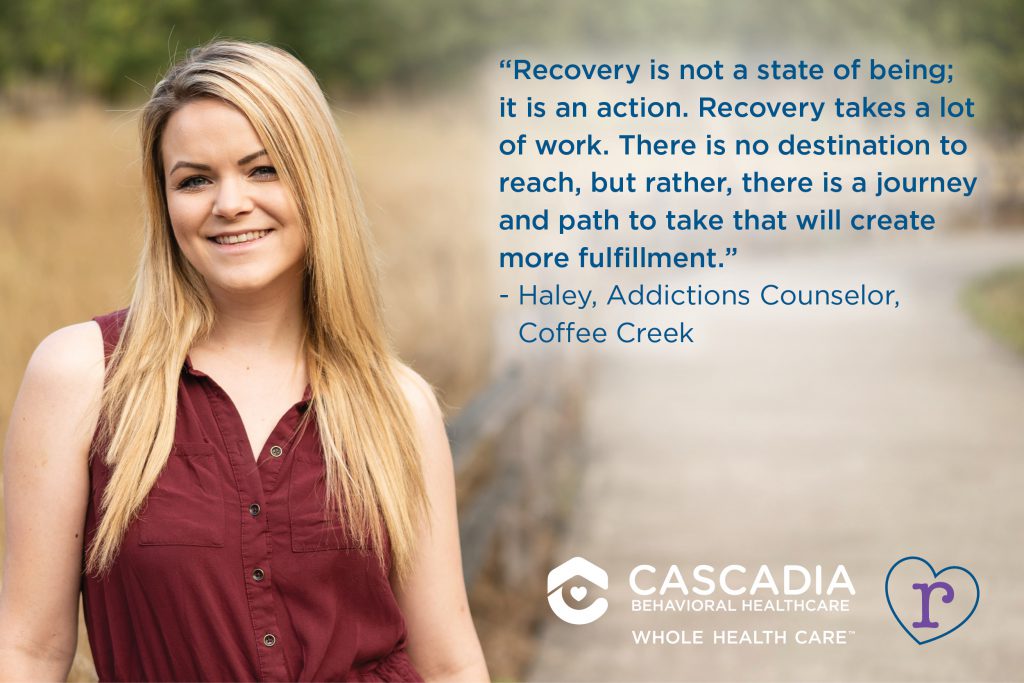September 9, 2019
Voices in Recovery, September is National Recovery Month

September is National Recovery Month. Across the country, people in recovery are celebrating their successes and sharing them with others in an effort to educate the public about treatment, how it works, for whom, and why. Cascadians are sharing their personal stories of recovery in hope that it will inspire and encourage others. Together we are stronger, and can create a #wholecommunity.
Haley
I am an Addictions Counselor working at a women’s correctional facility. This is my story:
I got sober at 22 years-old. I had a lot of people supporting and encouraging me in my journey.
I consider myself very fortunate to have been given the opportunities I was given early in recovery. Every time I made progress, even with something small like paying my first bill or doing the right thing, I got a sense of pride and accomplishment. That feeling kept me going. Eventually, I started regaining parts of my life. I knew recovery would be hard, but I had hope that my hard days were not going to be nearly as hard as what I experienced in my addiction.
I enrolled in classes and received my high school diploma five months after I got sober, and four and a half years after dropping out of high school due to my drug use. I worked a program of recovery, attended meetings, and worked with a sponsor. Eventually, I decided to go back to school to further my education and work toward a degree in Addiction Studies.
My early recovery role models were my counselors in treatment. I looked to them to see what was possible and what was appropriate behavior. Any question I had, I gave to them. I know that part of my role as an addictions counselor is to do the same for my clients. I believe my personal experience helps me better empathize with my clients. My story has given me a passion for this kind of work. I want to help other people learn the skills they need to live a life in recovery.
In my addiction, I was completely fractured. To live a life in recovery, I had to take care of my physical and mental health as well. Access to these services is a major barrier to recovery for many people. My hope is that Cascadia can help bridge that gap for those who are seeking recovery from substance use and mental health issues.
And, today I am most grateful for my family. I am engaged to a truly supportive partner and have two amazing stepchildren that I love dearly.
Get support. You can’t do recovery alone. There is still pain and hurt and heartache in recovery. Those feelings are much easier to tackle if you bring support.
Recovery is not a state of being; it is an action. Recovery takes a lot of work. There is no destination to reach, but rather, there is a journey and path to take that will create more fulfillment.
